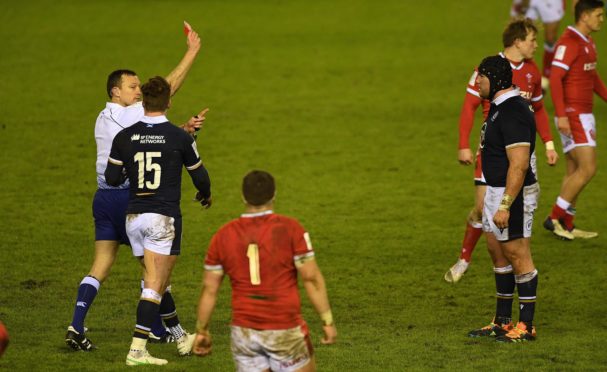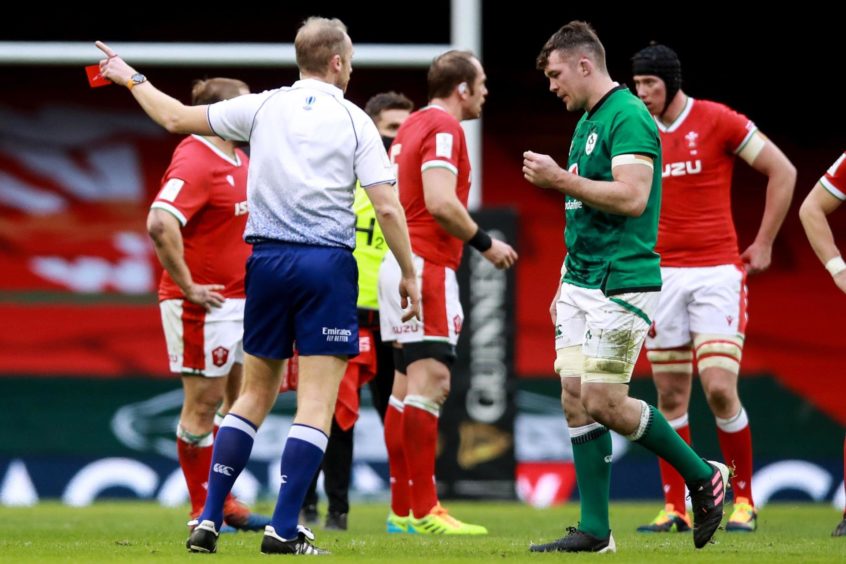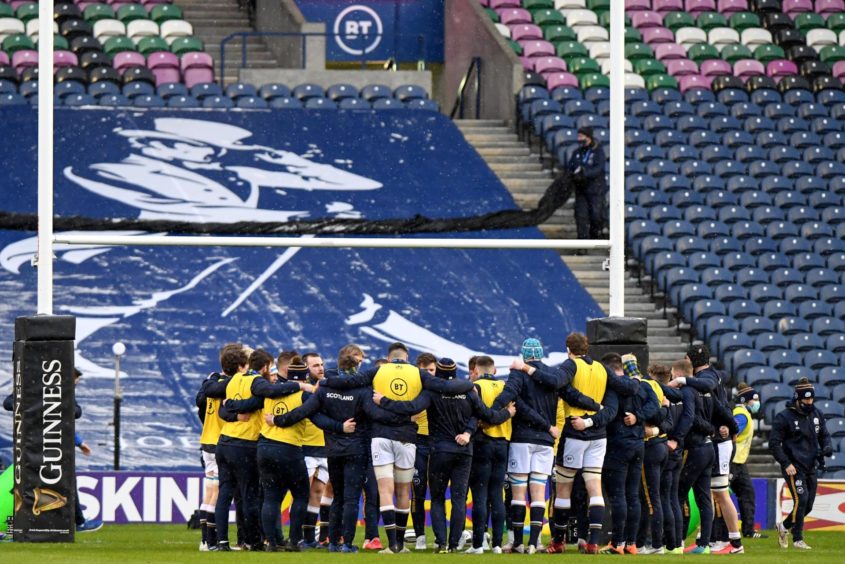Scotland fans will no doubt be puzzled at why Zander Fagerson, Scotland’s tighthead prop, got a four-match ban for his red card against Wales while Ireland’s Peter O’Mahony just got three games for a roughly similar offence a week previously.
One could argue that O’Mahony’s offence was more serious as the clearout was more directly aimed at the head area.
No doubt there will be some who talk of conspiracies. O’Mahony is a distinguished ex-Ireland and Lions captain (you forgot he was skipper in the first test in New Zealand in 2017, didn’t you?) He has a worse disciplinary record than Fagerson as well.
But the extra game is entirely because Ireland and O’Mahony played the delicate and often ludicrous game that is rugby’s post-match disciplinary process and Scotland and Zander didn’t.
Schoolboy before the headmaster
Previously in these columns we’ve derided the disciplinary process as being laughable and far too redolent of schoolboy being called before headmaster.
Players literally get games lopped off potential bans by being nice and polite to the panel. You can try to borderline assault a teenager on the pitch and get deservedly red-carded, yet being nice to the panel and bringing up your charity work can get your ban halved.
I’m not being flippant. This actually happened with England captain Owen Farrell prior to the Autumn Nations Cup.
O’Mahony appeared before his panel last week and said it he accepted referee Wayne Barnes’ decision. He was courteous and polite, it seems, and with an exemplary disciplinary record (really?) the possible ban of six weeks was halved to three.
Here’s the difference. Zander appeared this week and, one presumes with the approval of the Scotland team management, disputed Matt Carley’s decision of a red card.
Whether or not you agree it was the wrong decision (I don’t, actually) it was not a wise move if he wanted to be treated leniently.
That sole difference accounted to one further game of ban in the panel’s mind. Which is ridiculous when you think about it, as it’s merely a difference of opinion in hindsight.
Not playing along is an act of self-harm
We know the disciplinary process is daft. I’d like to see it thoroughly overhauled, to diminish the clear fact that wearing a nice suit, bringing posh choccy biccies and saying “yes sir, no sir” to the panel gets you leniency.
But while this current process exists, to not play along just seems like an act of self-harm.
Scotland know what the game is, why didn’t they play it? Was it beyond their principle just to say, “it was a fair cop”?
If they’d done so, Fagerson might have been free to play in the Italy game in March. Instead he’s out of the rest of the Six Nations and his Lions candidacy might be marginalised.
Maybe they thought Zander was going to get his three game ban, would miss the rest of the championship anyway and they wanted to try and prove a point. Well, the panel certainly obliged them.
Scotland’s relationship with the refs
Whose idea was this? Scotland have created an image for themselves of having a problem with some refs – Romain Poite, who will ref the game against Ireland in three weeks, as well as Carley.
What purpose does it serve? I’m sure the refs are even-handed and call the game on its merits. Scotland get pinged by Matt Carley a lot because they do things in games he interprets as penalty offences.
The solution is to stop doing these things when he’s the ref.
Rather than call into question his decisions three days after the result has gone, irrevocably, into the record books.
Saturday was a great game for the Welsh, and for the neutral.
But all I could think about afterwards was how amazing it would have been with 67,000 seats in Murrayfield filled.
Even as great and fluctuating and exciting games as Saturday’s are a miserable experience without a crowd.
It’s made one realise that the live audience are two-thirds of the unique appeal of the Six Nations Championship. I’m even now prepared to forgive that group in the North Stand who habitually start up the wave.
Next week Scotland are (due) to be in Paris. Without the fervour of La Marseillaise and the bands playing, it’s not going be remotely the same.
In addition, my admiration for the denizens of the upper tier of the West Stand at Murrayfield has increased massively.
The ad-hoc, socially-distanced press box has been up there during the pandemic. On Saturday, with the wind chill at -6, it was the coldest I’ve been at a sports venue in 40 years.
My hands and legs were numb when I tried to stand up at the end of the game. They must be hardy folk with season tickets up there. Mind you, they don’t have to spend five hours out there with no relief like we hapless journos.



